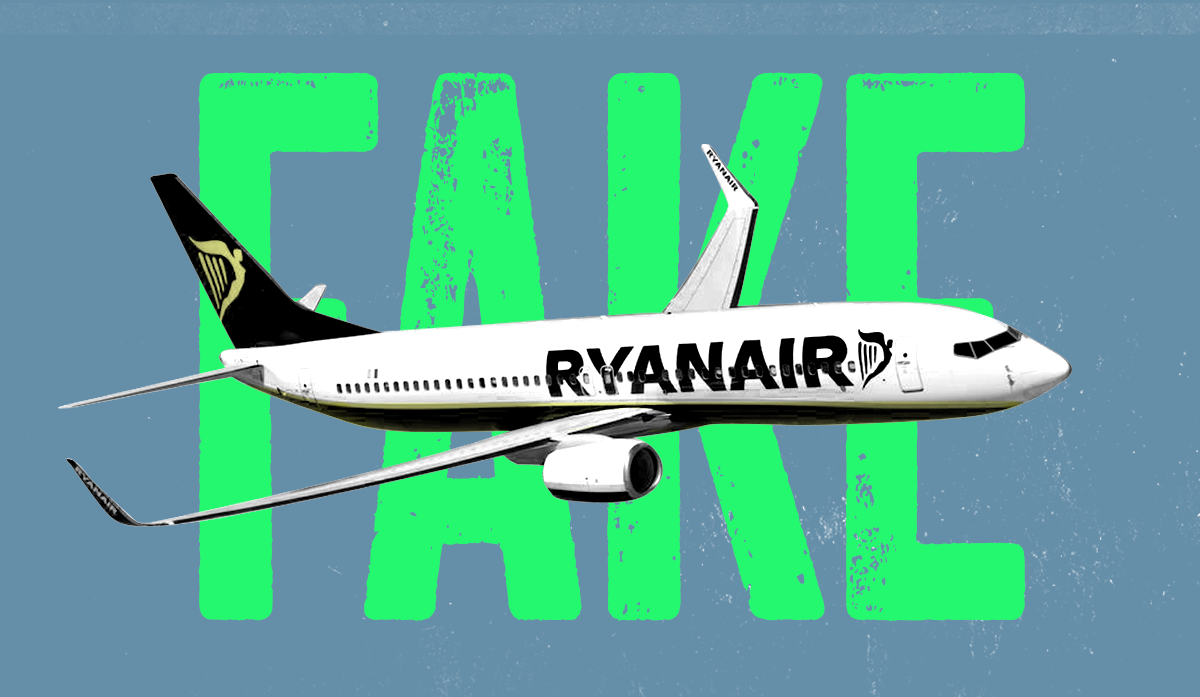The biggest aviation emitter in Europe's fake ‘green’ ad shows why lawmakers must take on its soaring emissions
The biggest aviation emitter in Europe's fake ‘green’ ad shows why lawmakers must take on its soaring emissions

Choosing to buy a flight is one of the single most damaging thing consumers can do to the environment. Short haul flights should be tackled first because people have viable alternatives - taking trains across Europe can be fast and a much better experience than flying. Ryanair specialises is marketing cheap short haul flights to the mass market and in doing so get many people flying who might not have done otherwise.
In other words, Ryanair's business model is, by definition, unsustainable.
The economics of travel is diametrically opposed to sustainability. Perverse subsidies and badly planned tax regimes mean that aviation does not pay enough tax. Large aviation corporations are artificially profitable because they do not pay for the pollution and damage they cause to society and to the environment. In many cases, flying is cheaper than taking trains. This is no longer acceptable at a time of climate emergency. New laws are needed to block airport expansion and shrink the aviation sector.
Ryanair's marketeers have finally gone too far. Today, Ryanair, the biggest aviation emitter in Europe, has been sanctioned by the UK Advertising Standards Authority for misleading claims that it’s a green airline.The low-cost operator mislead consumers in press, TV and radio ads by claiming to be “low CO2” and “Europe’s… lowest emissions airline”, the ads watchdog ruled. Green campaign and research group Transport & Environment (T&E) said the ruling dispels Ryanair’s green myths and shows the need for lawmakers to finally do something about airline emissions.
Ryanair has been ordered to withdraw the misleading claims about its “green” credentials. The airline’s CO2 emissions increased by half in five years, putting it on the EU’s list of top 10 emitters. Yet, despite airlines’ soaring pollution, the sector pays no tax on its fuel and has no obligation to start using newer, cleaner fuels like synthetic kerosene.
T&E’s aviation manager, Jo Dardenne, said:
Ryanair should stop greenwashing and start doing something to tackle its sky-high emissions.
This ruling is a reminder that the aviation sector’s climate impact is soaring because of a decades-long tax holiday and almost zero regulation of their pollution. European governments must without delay agree bilaterally to tax jet fuel until EU Vice-President Timmermans secures the end of the tax exemption.”
The emissions of all flights departing from EU airports have grown from 1.4% of total EU emissions in 1990 to 3.7% today. If unmitigated, aviation emissions are expected to double or triple by 2050 and, in doing so, consume up to one-quarter of the global carbon budget under a 1.5 degree scenario.


